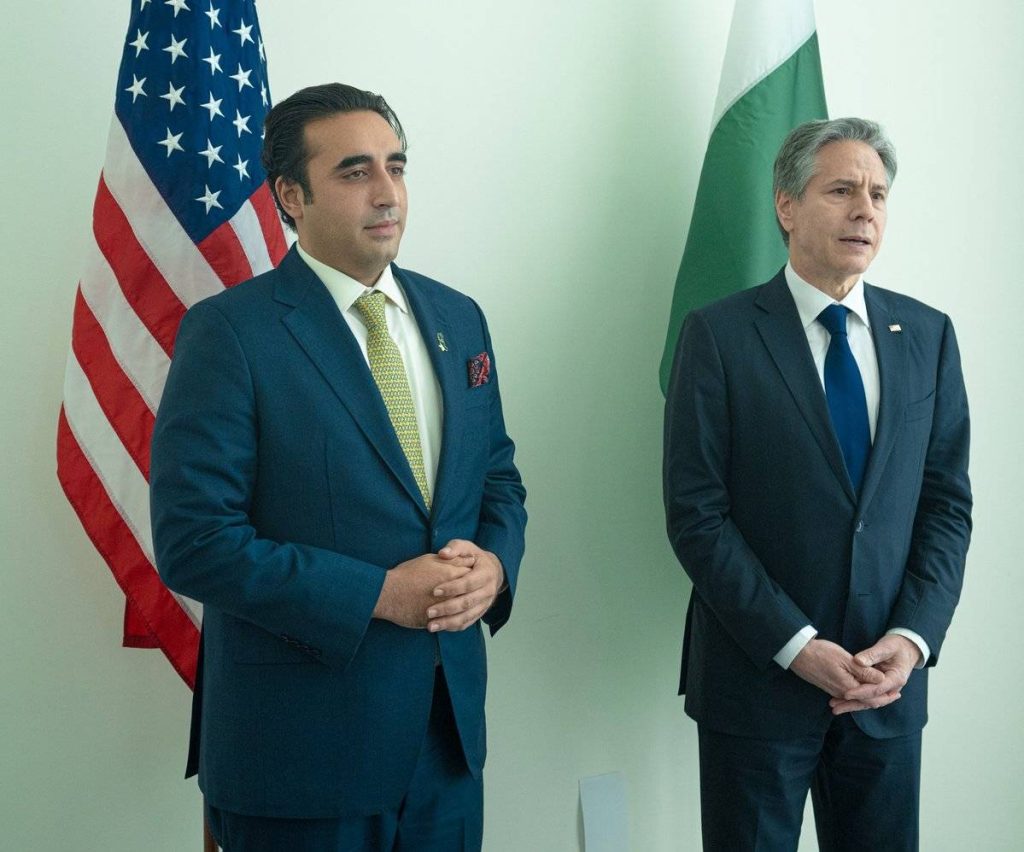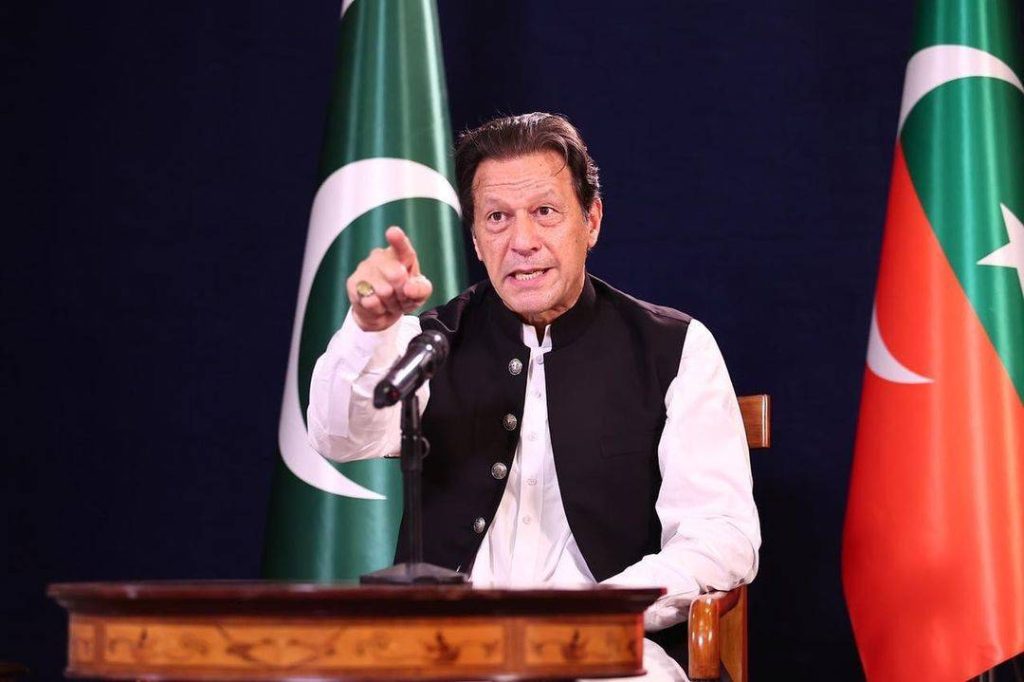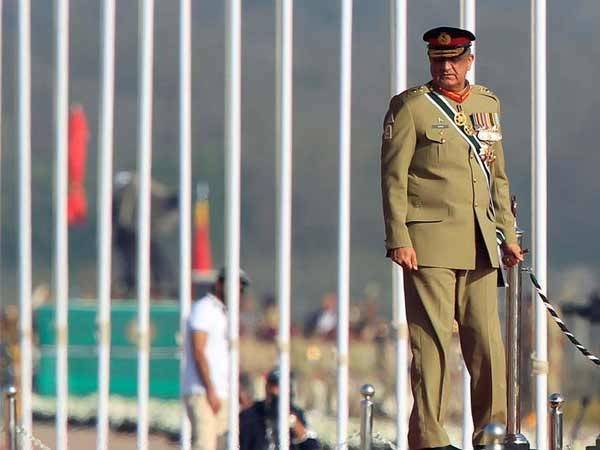A day after Zawahiri’s killing Bajwa took the unusual step of calling US Deputy Secretary of State, Wendy Sherman for seeking a quick disbursal of $1.2 billion tranche from the IMF to bail out Pakistan’s ailing economy, write Vivek Mishra & Sarral Sharma
Pakistan and the United States are making active efforts to reset their bilateral ties. The new ruling Pakistan Democratic Movement (PDM) alliance in Islamabad has shown eagerness to improve relations with Washington after three and a half years of strained ties under former prime minister Imran Khan’s rule. The recent push to improve Pak-US relations has come at a time when the Pakistan government is desperately looking for outside support to stabilize its faltering economy and prevent the default risk. Whereas Washington is expecting cooperation from Islamabad on Afghanistan, counterterrorism, and support on the Russia-Ukraine issue.
The recent killing of the al-Qaeda leader Ayman al-Zawahiri in a US Over-the-Horizon (OTH) operation signals that Pakistan may have struck a bargain with the US to allow its air and ground space to be used in turn for economic relief through an IMF loan and exist from the FATF.
Although there has been an increased engagement between Pakistan and the United States, Imran Khan’s open anti-US stand, his growing political clout, and possible chances of returning to power, and a weak coalition government in Islamabad may jeopardize attempts to repair bilateral ties. Meanwhile, Pakistan’s powerful military establishment is backing the PDM government’s efforts to revitalize relations with the US.
For India, the recent push to repair Pak-US ties may not bring any immediate challenges. However, New Delhi should follow these developments closely, especially possible US financial assistance to Pakistan, anti-India lobbying in Washington, or support for Pakistan at the Financial Action Task Force (FATF), which could have serious security implications for India in the near to long-term.

Pak Angle
Pak-US relationship was severely damaged during Pakistan Tehreek-i-Insaf’s (PTI) government, which lasted for almost four years. Even after three months of his government’s fall, Imran Khan has been blaming the US for the alleged ‘regime change’, with the tacit approval of the “neutrals” or the Pakistan Army. More importantly, Khan’s anti-American sentiments are reverberating among his supporters. As a result, the PDM coalition government is under immense pressure to justify its renewed push to improve Pakistan’s strained ties with the US.
Furthermore, Imran Khan and his party members are criticizing any bilateral engagements between Washington and Islamabad, official and unofficial visits, and other confidence building initiatives between the two countries. Under these circumstances, the Shehbaz Sharif-led alliance is facing a serious political dilemma between prioritizing ties with the US or facing political consequences in the next National Assembly elections in Pakistan. The multi-party coalition is cognisant that Imran Khan will continue to play the ‘victim’ card in the future and use the alleged US-led “foreign conspiracy” against him as an emotive issue to garner public support.
During recently held by-elections in Punjab province, Khan openly evoked anti-American propaganda and repeated his allegations that the ruling PDM alliance, which he denounces as ‘imported government’, was brought to power through US conspiracy. Interestingly, his party won unprecedented 15 seats out of total 20, clear evidence of PTI’s growing political clout in the country despite being out of power for the last three months. Therefore, it is noteworthy that any favourable political outcome for Imran Khan may derail or limit efforts to repair Pak-US ties.
The PDM coalition government, on the other hand, is struggling to survive politically and failing to keep the country’s dwindling economy afloat amid growing fiscal deficit, high inflation rates and an all-time high Pakistani rupee to US dollar exchange rates. While security cooperation and Afghanistan remain core bilateral issues between Pakistan and the US, Islamabad wants to prioritize trade and energy relations with Washington. Consequently, Pakistan is pursuing US support to resume the stalled International Monetary Fund (IMF) bailout programme and seek help for fresh assistance from other international financial institutions.
Within a month of the new government in Islamabad, Foreign Minister Bilawal Bhutto-Zardari met Secretary of State Antony Blinken in New York and discussed “expanding partnership in climate, investment, trade, and health as well as people-to-people ties.” Besides Bilawal, other key Pakistani government officials such as finance minister Miftah Ismail and Special Assistance to the Prime Minister on Foreign Affairs, Tariq Fatemi, have also travelled to the US to push for the Biden administration’s support at the IMF. Those efforts have so far provided very limited relief, and mostly rhetoric, to the people of Pakistan. For Shehbaz Sharif-led coalition government, time is running out fast as it is under immense pressure to hold early elections, possibly by November this year, after Pakistan Muslim League-Nawaz (PML-N) lost July 17 by-polls in Punjab to Imran Khan’s PTI.

Simultaneously an emboldened Imran Khan has openly blamed the nexus of his political opponents, “neutrals” or Pakistan Army, and the US for his “illegal” removal from power in April. Since then, there have been several instances of anti-Army sloganeering and statements by PTI supporters, a rare development in Pakistan.
Faced with the blowback, the Pakistani military has shed its blinkers, taken the lead, and embarked on an all-out effort to court the United States and the West. Here, Army Chief, Javed Qamar Bajwa is leading from the front. A day after Zawahiri’s killing Bajwa took the unusual step of calling US Deputy Secretary of State, Wendy Sherman for seeking a quick disbursal of $1.2 billion tranche from the IMF to bail out Pakistan’s ailing economy.
Fully cognizant of the Anglo-American alliance, Bajwa then headed for London. In the British capital he became the chief guest at the Sandhurst military academy passing out parade. More importantly, he symbolically acknowledged his country’s subservience to the British royalty—a step that would have been met with approval in western capitals.
According to the UK’s Defence Ministry, General Bajwa represented the queen at the sovereign’s parade for commissioning course 213 (CC213) of the Royal Military Academy Sandhurst (RMAS). Gen. Bajwa during his address said that representing the Queen was a “unique honour and great privilege”.
(Dr. Vivek Mishra is Fellow, Strategic Studies Programme, ORF, New Delhi. Sarral Sharma is a Doctoral Candidate at Centre for National Security, Jawaharlal Nehru University, New Delhi)

